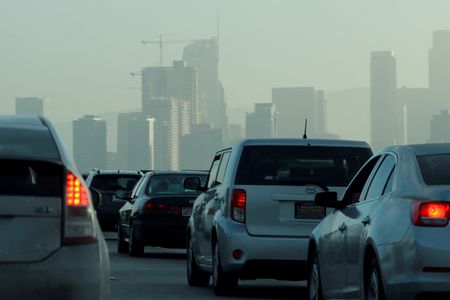 1
1 1
1

By David Shepardson
WASHINGTON (Reuters) -Major U.S. and foreign automakers on Wednesday backed the Environmental Protection Agency’s (EPA) new tougher vehicle emissions regulations in a court challenge brought by some states and ethanol groups.
Texas and 15 other states have challenged the EPA’s vehicle emissions rules that reverse a rollback of tailpipe rules issued under former President Donald Trump.
The Alliance for Automotive Innovation, representing nearly all major automakers, said in a court filing the EPA rule “will challenge the industry” but provides automakers with “critically important flexibilities.”
Automakers, the group added, want to ensure “critical regulatory provisions supporting electric vehicle technology are maintained.”
The states are joined by some corn and soybean growers associations, the American Fuel And Petrochemical Manufacturers and others. Corn growers, a Valero Energy subsidiary and other ethanol producers said the new EPA rules revising emission requirements through 2026 “effectively mandate the production and sale of electric cars rather than cars powered by internal combustion engines.”
Texas Attorney General Ken Paxton filed a challenge joined by Ohio, Alabama, Arkansas, Alaska, Indiana, Kentucky, Louisiana, Mississippi, Missouri, Montana, Nebraska, Oklahoma, South Carolina and Utah. The state of Arizona filed a separate legal challenge.
The automakers, which include General Motors Volkswagen AG, Toyota Motor Corp, Hyundai Motor and Chrysler-parent Stellantis , said in the court filing the “transition must be supported by regulatory stability. If the outcome of the litigation remains in question for a significant period … (automakers) could face stranded investments and planning uncertainty.”
The new rules, which take effect in September and require a 28.3% reduction in vehicle emissions through 2026, aim to speed a U.S. shift to more electric vehicles.
The National Highway Traffic Safety Administration on Friday will announce its final parallel Corporate Average Fuel Economy revisions of rules through 2026, Reuters reported. Separately, NHTSA on Sunday confirmed it finalized a dramatic jump in fines for automakers not meeting regulatory standards.
(Reporting by David ShepardsonEditing by Chris Reese, Bernard Orr)